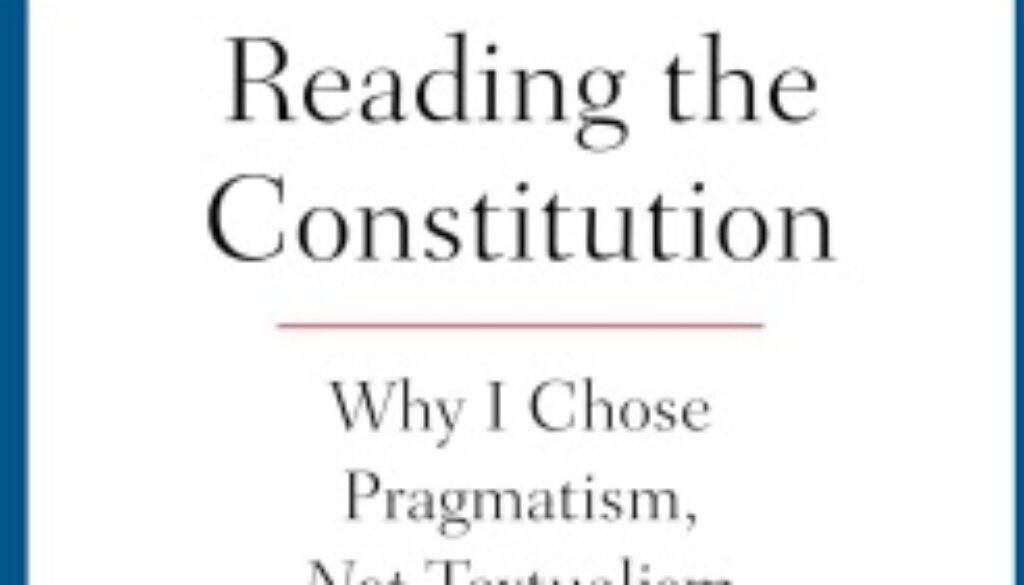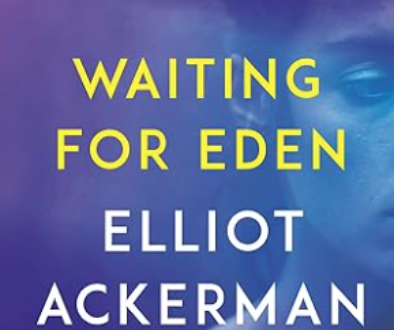Reading the Constitution: Why I Chose Pragmatism, Not Textualism by Stephen Breyer
A few weeks ago I was listening to Late Night with Stephen Colbert and heard retired Supreme Court Justice Stephen Breyer interviewed. He was talking about his latest book, Reading the Constitution – Why I chose Pragmatism, Not Textualism, which sounded interesting. Before you roll your eyes 🙄, let me explain. The book addresses what Justice Breyer considers a critical matter for the Supreme Court. That is, when interpreting laws and the Constitution itself, should the Supreme Court look solely at the text of the law or the Constitutional provision, or should it consider in addition to the text Congress’s purpose in enacting the law or the Founders’ intent, the impact of the interpretation, and practicality, among other factors.
Aside from causing flashbacks to law school, I found Reading the Constitution – Why I chose Pragmatism, Not Textualism a fascinating read. Justice Breyer tries to keep the discussion at an understandable level, although I must admit some of the First Amendment discussion is pretty technical. Regardless, I thought he made a compelling case for his purpose-driven approach to interpreting the laws of our land, rather than having to rely solely on the text in question and what the words meant at the time they were drafted. He makes it clear the Constitution sets forth the structure of our government in general terms, giving it the flexibility it needs to endure over time. He fears, however, that rigid text-based interpretations inhibit its ability to adapt to changing technologies and times, potentially reducing its relevance over time. Instead, he believes those interpreting the Constitution should focus on the values it enshrines, which are meant to be enduring.
Much like you would find in a legal brief, Justice Breyer covers both sides of the argument but leaves no doubt where he stands and where the Supreme Court should be headed. If you’d like to understand the issues, and have a better understanding of the judicial branch of government in general, I definitely recommend you give Reading the Constitution – Why I chose Pragmatism, Not Textualism a try. You can buy it on Amazon by clicking here.
If you enjoyed this book review, please sign up for the Voices to Veterans Spotlight monthly newsletter by clicking here. Once each month, you’ll receive a new book review together with a new story about an American veteran directly in your mailbox. Best of all, it’s free and you can unsubscribe at any time.





June 23, 2024 @ 11:24 AM
Reading this right now. I’m torn on pragmatism vs. textualism. Having been a judge for sometime now, you have to start somewhere and the text is the logical place. Sometimes the Constitution is quite clear – like how old a person has to be to be a member of Congress. Says right in the text got to be 25 years old. Not hard.
Sometimes it is not clear, or silent, so what do you do? Right to marry? Right to raise your children? Right to travel. Everyone likes unenumerated rights but Courts have long said the 9th Amendment isn’t a bucket of rights like bobbing for apples; want one, get one if you can. Policy and pragmatism are politicians roles, not judges.
Curious to see how the obvious (and unnecessary) dicta in Rahami’s multiple concurrences, that is squarely aimed at this discussion, play out long term. The “law trapped in amber” quote from Rahami will be the anchor of textualism’s arguments.
June 25, 2024 @ 2:49 PM
Jay – Thanks for your comment. My takeaway from the book is it’s not an all or nothing decision. That is, as a judge, you are free to use all the tools available to you to reach an appropriate decision. So, it’s fine to rely on text, just not to the exclusion of all other tools.
V/r,
Dave Grogan